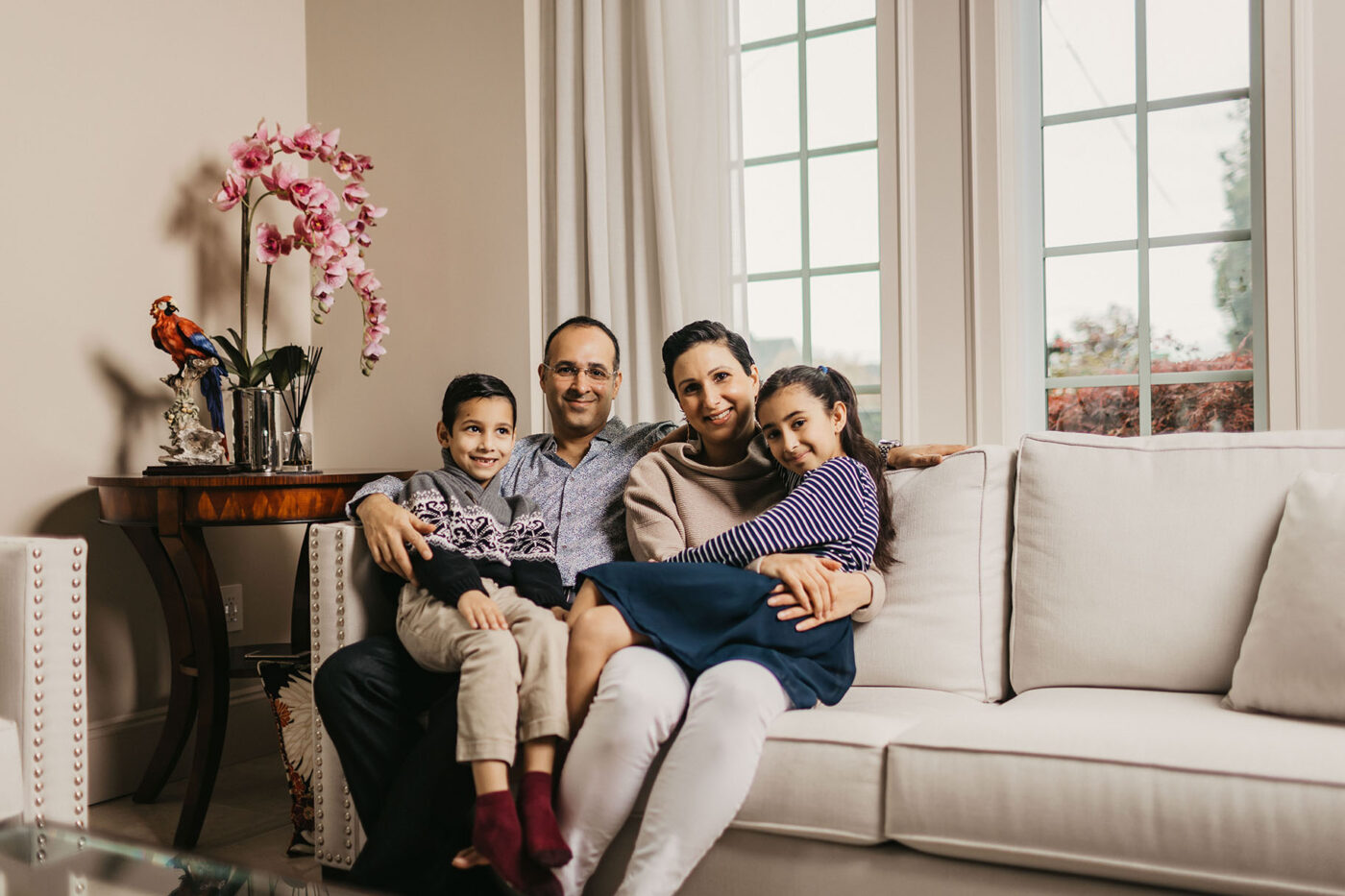For more information on the Personalized Onco-Genomics program, contact Alyson Killam at 604.877.6160 or akillam@bccancer.bc.ca.
Opening Thoughts
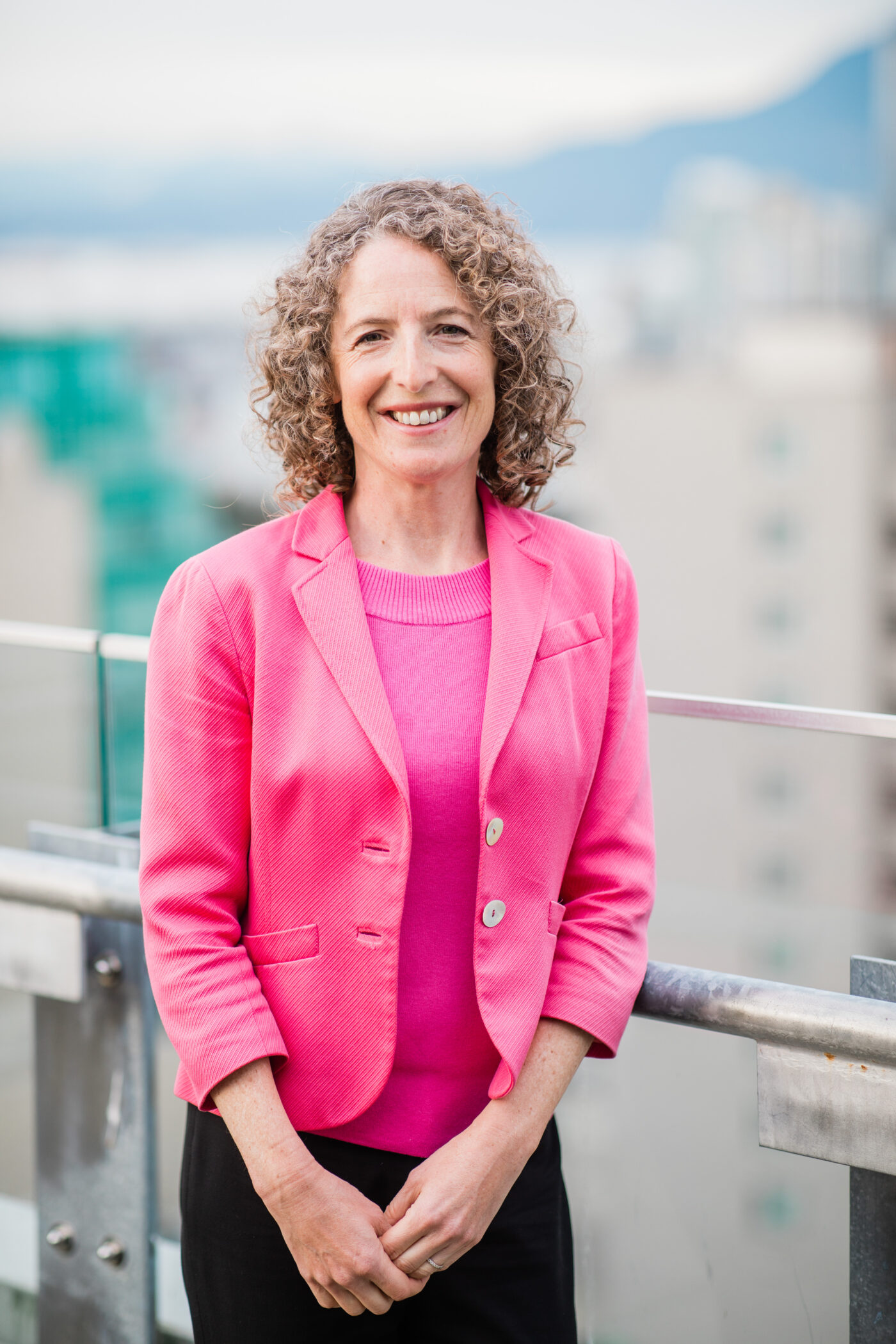
During one of my recent visits to BC Cancer – Victoria, a colleague and I took advantage of a short break between meetings to stretch our legs on the seawall. We struck up a conversation with an older couple, sitting nearby. Small talk about the beautiful weather led to our reason for sneaking in a midday stroll. I watched their eyes light up, as people’s often do, when I mentioned BC Cancer.
Turns out they were both cancer survivors — breast and prostate — and were so incredibly grateful for the world-class care they received in our province. This pair, who went through their own cancer journeys together and now years later were thriving, are why we do what we do.
A few weeks later, I received a phone call from another couple — almost 5,000 km away. Thea Caplan and Tony Zwig of Toronto (coincidentally also breast and prostate cancer survivors) are also huge admirers of the work being done at BC Cancer, specifically in Personalized Onco-Genomics (POG), Canada’s flagship cancer genomics program.
Their own research into groundbreaking genomics clinical trials led them to us, and they committed $750,000 to advancing the POG program. They chose BC Cancer above all others (even those closer to home) as the best place for their donation to make a difference.
Like our long-time supporter, the late Leon Judah Blackmore, of the newly named L.J. Blackmore Cancer Research Centre, these two couples, on opposites sides of the country, share a common conviction with all of us: an unwavering belief in the excellence of BC Cancer.
Sincerely,
Sarah Roth
President & CEO
BC Cancer Foundation
Faith From Afar
In August 2021, Canada’s Michael Smith Genome Sciences Centre (GSC) received an email, out-of-the-blue, from two Torontonians, Thea Caplan and Tony Zwig, asking if it were possible to donate directly to the Personalized Onco-Genomics (POG) program in B.C. GSC wondered who they were, and how they had found them.
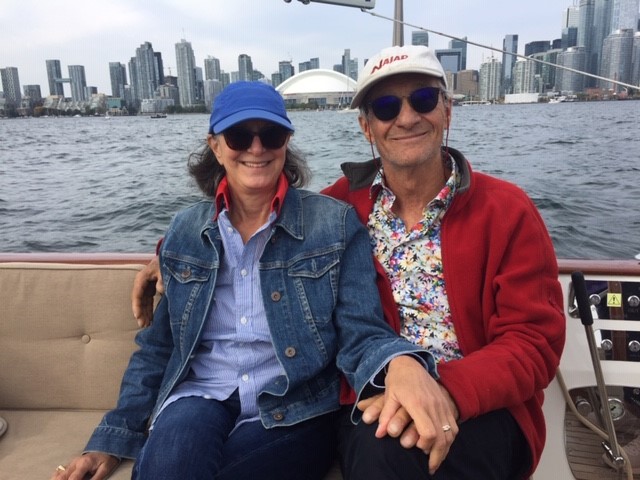
For Thea, a Grade 12 biology class on M.S. fascinated her, as did high school genetic classes. That ignited a lifelong practice of reading medical journals and textbooks.
When Thea was diagnosed with breast cancer 12 years ago, and Tony with prostate cancer six years ago, Thea wondered why “personalized” assessment and treatment were not more specifically matched to molecular markers or genes. She was surprised that her oncology surgeon didn’t mention a multigene assay to evaluate if she could be spared chemotherapy. She had to ask for it.
Thea and Tony felt that “standard” care was too general and non-specific. Treatment was moving in the direction of tailored treatment, but too slowly, given the explosion of genomics and technological advances.
By chance, one night, Thea saw a CBC documentary, Cracking Cancer, which featured seven patients enrolled in the POG program, a unique clinical trial which assesses a person’s whole genome (20,000 genes: in normal cells and biopsied cancer cells) to identify specific genetic mutations and transcriptomes driving that person’s cancer and to identify a drug that could block the cancer driver. Some patients with metastasized cancer had been successfully treated with a drug to block their cancer growth. “It’s transformational,” Thea said to Tony. “It’s what’s been missing.” Quietly, she followed POG’s progress.
Turning 70 this year, Thea and Tony reflected on their lives and decided to be more intentional and purposeful in their donations. They wanted to support progressive charities that reflected their values. The POG program stood out. From the TV documentary, Thea remembered Dr. Janessa Laskin, co-founder of the POG program, as an empathetic clinician and visionary researcher. A little more digging: Thea and Tony especially liked that POG co-founder, Dr. Marco Marra, an early champion of genomic research and a recent inductee into the Canadian Medical Hall of Fame, and Dr. Laskin, were promoting innovative data-driven genomic research. The POG program, started in 2012 in B.C., is spreading across Canada, enabling the standardization, collection, and analysis of large data sets to identify deleterious mutations and evaluate the efficacy of treatment. Researchers were collaborating, sharing data, not working in isolation.
Thea and Tony were impressed. They went to work, sent the email to the BC Cancer Foundation, and committed to giving $750,000. In October, they offered to use their donation to extend BC Cancer Foundation’s triple-match opportunity to inspire others across Canada to support transformational cancer research and precision treatment.
“My hope is that our donation will help in the search for reaching objectives of more targeted treatments and effective treatments for cancer,” says Tony. Thea adds, “One day, I’d like to see everyone who is diagnosed across Canada receiving a whole genome analysis via POG—not just when the cancer has metastasized—so that treatment can be tailored from the start, and recurring cancers can be re-analysed for mutations and cell changes.”
Where Art and Science Converge
Martin Krzywinski is both a staff scientist and visual artist at Canada’s Michael Smith Genome Sciences Centre (GSC) at BC Cancer. He spends his days working in a rare, but beautiful, space of translation, where science and art intersect.
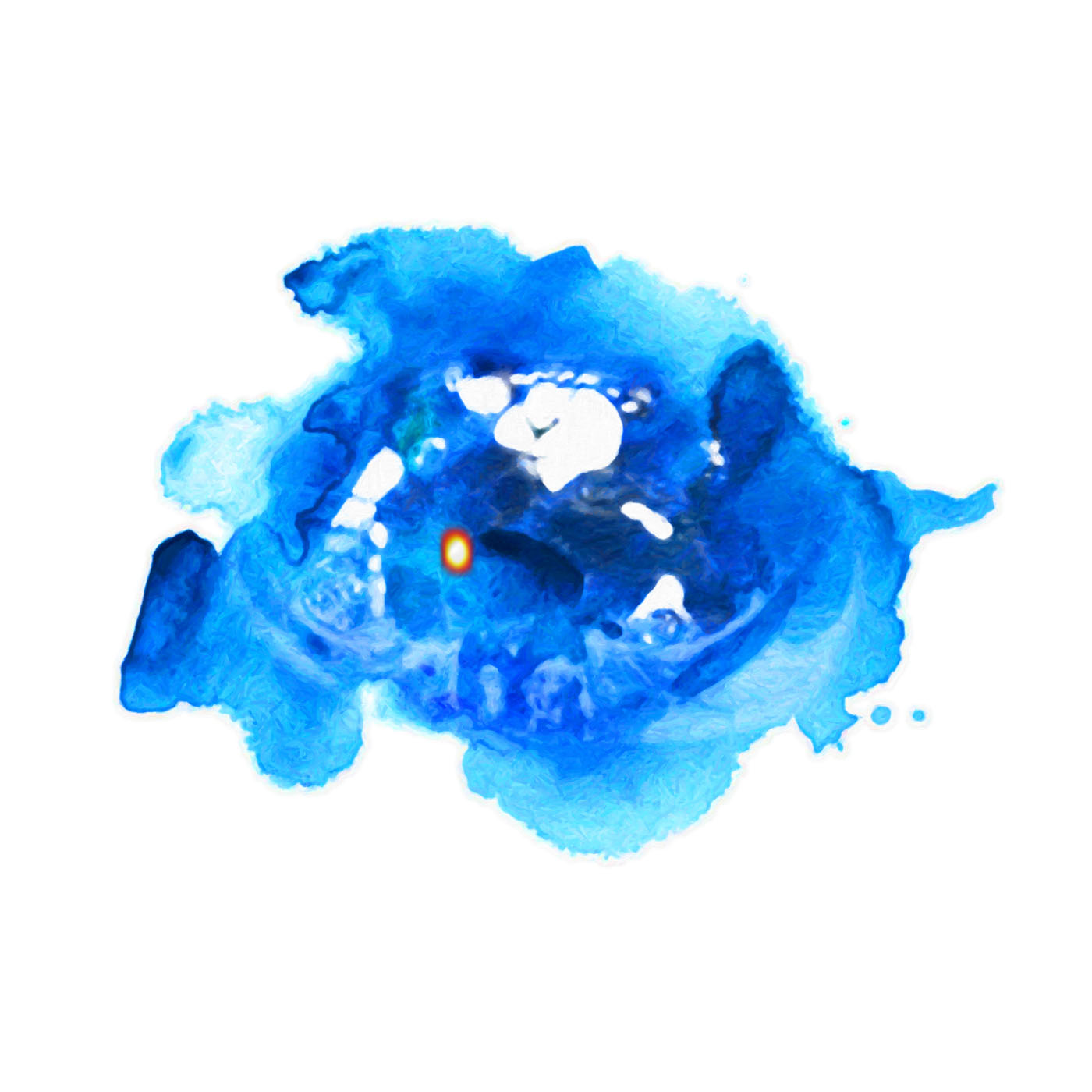
Artwork depicting a PSMA-PET scan, designed by Martin for the Evening of Inspiration presented by BMO Bank of Montreal
Equally passionate about communicating complex scientific data effectively, efficiently and esthetically, he’s revolutionized genomics data visualization by creating imaginative information graphics that combine analytical clarity with artistic dimension.
“I think this convergence of science and art naturally happens in all of us,” he says of himself and his fellow scientists. “When we do research and make discoveries, we both think and feel. I think about what I feel, and I feel about what I think.” And if this feels like a full circle moment, you’ve already tapped into Martin’s genius.
In 2009, he published a breakthrough paper in genome research, describing an innovative new way to think outside the box: Circos, a tool for visualizing data in a spherical layout that is proving to be as popular as it is visually compelling. Circos graphics have appeared in not just BC Cancer publications, but also on the covers of scientific journals and books worldwide, and in the pages of Wired, The New York Times and American Scientist.
Science translated into art is a reminder that the pursuit of science is a deeply emotional activity for many, says Martin, who adds that this is especially true when it comes to cancer research. “The pursuit of answers in cancer research isn’t for its own sake, but for the sake of others that live and dream.”
But scientists can’t do it all by themselves, he’s quick to add. “Donors are integral to this research and ongoing breakthroughs at the GSC and BC Cancer.”
“Science is a remarkable process. It’s a flashlight that lets us see things that make noises in the dark. Some of this darkness needs the most powerful flashlights. But we go through batteries very quickly,” says Martin. “Donors help us maintain a steady supply of batteries, so that our flashlights never go out.”
Thanks to the ongoing support of BC Cancer supporters, innovators like Martin can continue to push boundaries, view science from new angles and shine a light on tomorrow’s breakthroughs that will change cancer outcomes.

Thanks to genetic testing Shiraz Italia caught her ovarian cancer early.
In Her Mother's Name
Shiraz Italia was 12 when her mom died of ovarian cancer. If Shiraz hadn’t pursued genetic testing to determine her own risk, her daughter might have lost her at an even younger age.

Now her family is donating to BC Cancer’s renowned Ovarian Cancer Research (OVCARE) Program, which has joined forces with the Hereditary Cancer Program (HCP), to expedite the process of identifying more women at high risk so they can have life-saving preventative surgery.
Shiraz’s mother (aged 48) and grandmother (aged 39) both died of cancer. Knowing she had a family history, two years ago, in her late 30s, she chose to pursue genetic testing to find out if she had the BRCA1 or BRCA2 mutation, which would put her at an increased risk of ovarian and/or breast cancer.
She ended up on a 12- to 18-month wait list. “Something, my gut instinct, told me not to wait,” says Shiraz. So she got tested privately and the results came back positive for the BRCA1 mutation. Her doctor recommended removal of her fallopian tubes and ovaries as a preventative measure. In July 2020 she went in for surgery, “and that was supposed to be the end of it.”
Ten days later she received a phone call. “They had found a one mm-size tumour on one of my ovaries.”
A hysterectomy and six cycles of chemotherapy later, and she still feels rocked by her diagnosis. Shiraz is a teacher and says even something as simple as one of her students innocently commenting on her “new haircut” (now short, thanks to chemotherapy) can be triggering.
She finds strength in being there for her daughter, eight, and son, five, especially since, “I didn’t get the opportunity to grow up with my mom. I can’t let what happened to my mom be in vain.” Which is why Shiraz’s family created a charity in her name, the Maneck Homi Italia Foundation, and are donating to keep other women from going through what Shiraz did — or worse.
An estimated 25,000 women in B.C. have an inherited BRCA genetic mutation that puts them at increased risk of developing ovarian cancer. And none of them can afford to sit on a wait list, says Shiraz, who hates to think what could have happened if she had. “It could have been the difference between one mm and Stage 3 cancer. Ovarian cancer is named the silent killer for a reason.” It’s often not caught until advanced stages, which unfortunately for many is too late.
“My mom and my grandmother didn’t have the benefit of science, but we do.”
Shiraz hopes her donation will bolster the tremendous progress BC Cancer has already made in developing and improving access to tools to support genetic testing.
“This isn’t a new chapter in life for me… this is a new book,” says Shiraz. And she intends to make every page count by fuelling innovations in ovarian cancer research and care so that one day no more children will lose a mother to this disease.
To support ovarian cancer research in combination with the Hereditary Cancer Program, contact Fatima Hassam at 604-877-6226 or fatima.hassam@bccancer.bc.ca.
Circle of Hope
Each year in B.C., 130 children under the age of 17 are diagnosed with cancer. Today, these children are treated with chemotherapy, surgery and radiation, which can result in significant side effects.

However, BC Cancer Foundation Board member, Alex Blodgett, has committed to change the story for youth facing cancer with the help of BC Cancer experts like Dr. Poul Sorensen.
BC Cancer Distinguished Scientist Dr. Poul Sorensen is a leader in childhood cancer discoveries, and is passionate about developing immune-based treatments that are precise, less toxic and highly effective.
Along with their global network, his team have set a bold goal to deliver 5-10 new targets and immunotherapy treatments each year, which will offer new hope for families in B.C.
“I hope we can continue to find new and better therapies for pediatric patients, and show how childhood cancers can be a portal to a greater understanding of adult cancers as well,” says Dr. Sorensen. “Donors to the BC Cancer Foundation will continue to be vital in our mission to do so.”
Answering that call to action, Alex and his friend Paul Player, along with his dog Loki, decided to act.
In August, the group embarked on an epic 10-day, 375 km journey to raise funds for the Sorensen Lab in partnership with Anthem Properties.
Together, the trio hiked to Squamish, biked up the Elaho Valley, and hiked over Mt. John Clarke to Chatterbox Falls, before rowing back to Vancouver where they celebrated their amazing fundraising total: over $1.14 million!
“No child should have to suffer through cancer and miss the opportunity to do what Paul and I have done,” says Alex.
To support pediatric cancer research and care in B.C., contact Rhea Siu at 604.877.6157 or rhea.siu@bccancer.bc.ca.
Research Centre Renamed in Honour of Leon Judah Blackmore
Innovations in cancer research and care are often driven by donors who have undergone their own cancer journeys, or stood by a loved one who faced the disease. This makes the late Leon Judah Blackmore and his foundation’s $18.9 million in gifts to BC Cancer even more remarkable — Leon never personally faced cancer.
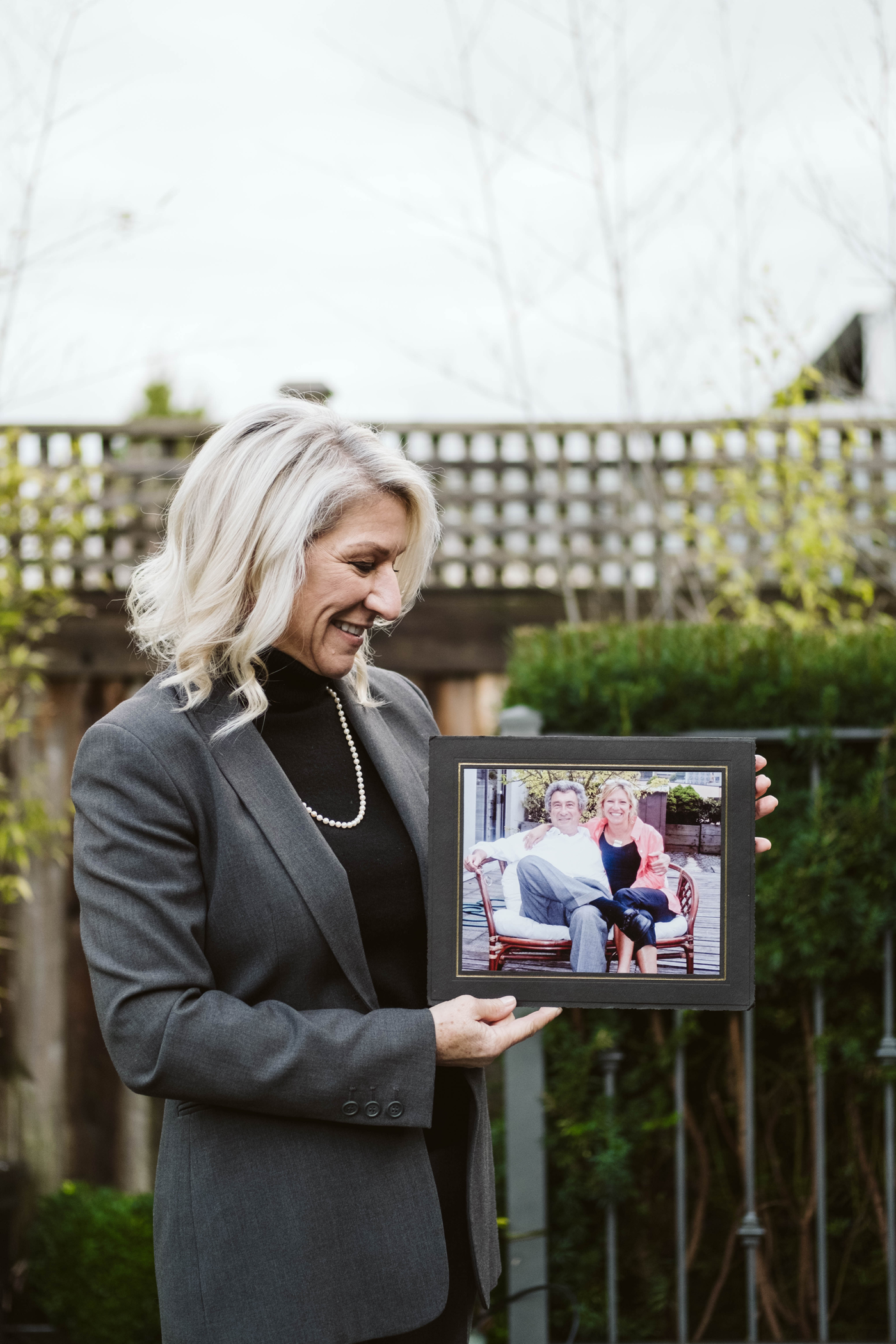
Instead, it was the world-renowned work by BC Cancer scientists in the building that now bears his name — the L.J. Blackmore Cancer Research Centre — that inspired Leon to give.
Leon came to Canada as a young child, escaping the Holocaust in Poland. He went on to have a successful career as a property developer, and regularly used this success to give back to his community.
He was introduced to BC Cancer through Dr. Stephen Lam, when in 1996 he participated in a pilot study for the early detection of lung cancer in high-risk individuals. He had such confidence in the BC Cancer experts and their ability to revolutionize the science of cancer research, prevention and care that he invested heavily to advance their work.
This generous support includes Canada’s largest known philanthropic investment of $15.3 million to specifically support lung cancer research and care, as well as significant donations to the Personalized Onco-Genomics (POG) program and immunotherapy research.
BC Cancer Foundation President and CEO Sarah Roth says, “This building now stands as a symbol to the power of philanthropy and to the confidence and conviction the community has in BC Cancer.”
Putting a Face on Lung Cancer
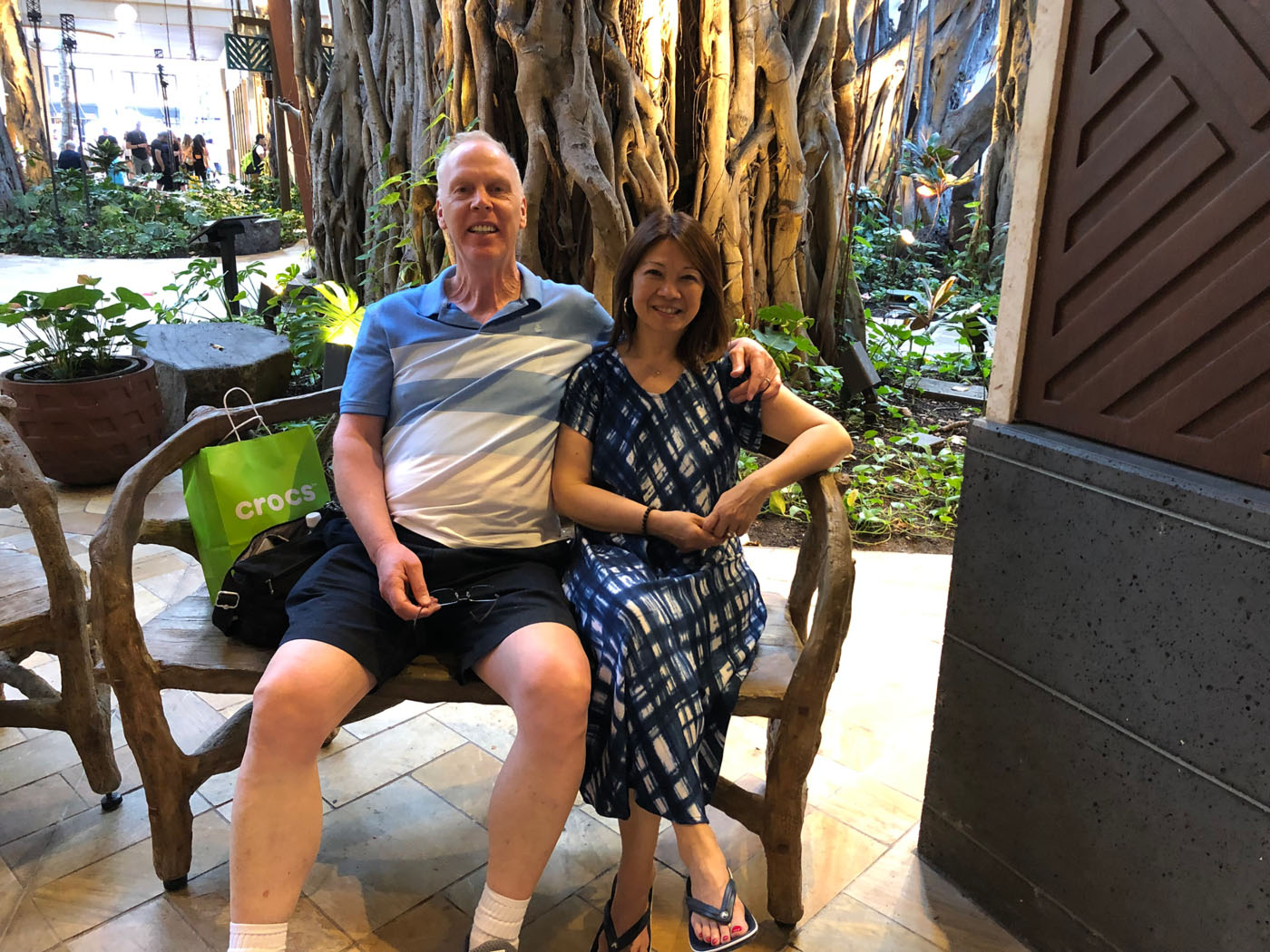
When Francisca Ling saw on the news that the Leon Judah Blackmore Foundation was donating $15.3 million to BC Cancer, specifically to advance lung cancer research and care, she burst into tears.
“People are paying attention to lung cancer,” she says of the long stigmatized and underfunded disease. “It gives you a lot of hope. Even if it’s not going to be for me — though I am hopeful — it’s great news for the future.”
Francisca, 64, received her own Stage 4 lung cancer diagnosis a little over a year ago. “It was difficult for me to finish a sentence without coughing,” she says, and after multiple scans she was shocked to find out why. “I’m a very healthy person. I don’t smoke.”
Francisca now knows that 25% of lung cancer cases occur in non-smokers, and that environmental factors such as air pollution, radon exposure, asbestos, arsenic and other chemicals are all contributing factors. She also knows that lung cancer is the leading cause of cancer-related death in B.C., in Canada and around the world, but she’s determined to stay positive.
“I’m very grateful to BC Cancer. I probably had six months to a year to live — they saved my life,” physically through four rounds of chemotherapy, and now immunotherapy, which has managed to shrink her tumour, she says, but also mentally, which she believes is equally important.
Cancer can be very isolating, says Francisca, who was forced to quit a job she loved as an IT and occupational health and safety manager. “You feel like you’ve been thrown onto an island. It’s a very difficult journey, and everybody has to walk on their own, unfortunately.”
But a peer support group, recommended early on by a BC Cancer counsellor, helped her realize she’s not alone. “I met somebody wonderful there, a cancer survivor who has been with me for the last year. We talk every day.”
And now Francisca wants to pay that forward. “As soon as I hear somebody is newly diagnosed with cancer I really want to reach out, and just talk to them,” she says, and recently did for a young friend with breast cancer. “If you’re able to share that experience you benefit as well,” she says, in that it gave her an opportunity to reflect back on, and be grateful for, all she’s overcome this past year.
“Being positive really does make a difference,” she says.
Helping her is her husband Alec who subscribes to the belief that laughter truly is the best medicine.
When asked about a photo to accompany this story, he didn’t miss a beat, quipping, “How about the one of us skinny dipping at the beach?”
Giggling, Francisca good-naturedly admonishes him, but admits, “It’s true, we don’t really have any normal pictures. We always make a funny face.”
To support lung cancer research, contact Elissa Ming Morrissette at 604.707.5992 or elissa.morrissette@bccancer.bc.ca.
One Man's Campaign to End Breast Cancer
Well-known Kelowna businessman and lawyer Walley Lightbody is sadly no stranger to the impacts of breast cancer. He lost his mother and sister to the disease — and then, in 2016, his wife Marietta.
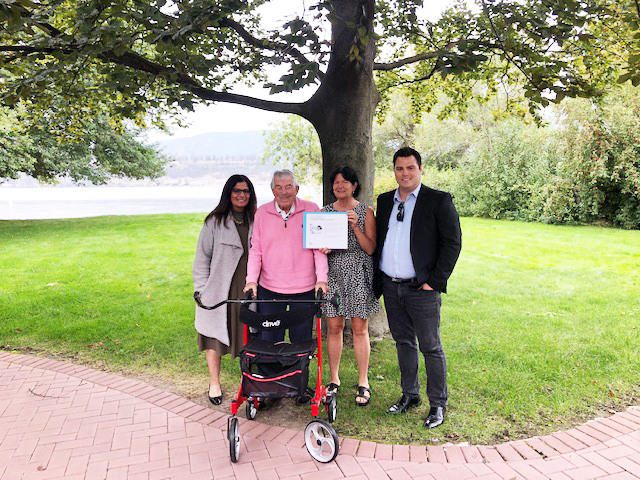
Wanting to help other women with breast cancer, and to spare families the sadness of losing their loved ones, he decided to generously donate to BC Cancer Foundation to help fund breast cancer research.
“Breast cancer took the life of my mother, my sister and my wife,” says Walley. “I will continue to offer whatever support I can to eradicate this monster from our lives.”
In honour of Marietta, Walley made a donation of $106,000 to the Precision Medicine for Breast Cancer Research (B-PRECISE) program at BC Cancer. Under the leadership of Dr. Samuel Aparicio, B-PRECISE is tackling unmet medical needs and bringing precision medicine (personalized, tailored treatments) to patients, in particular those with rare and hard to treat sub-types.
To date, B-PRECISE has had several major breakthroughs that have improved our understanding of breast cancer, including discovering 10 unique sub-types and decoding the genomic structure of the most deadly of these sub-types.
B-PRECISE and the Aparicio Lab are helping change outcomes for the more than 4,000 British Columbians who will be diagnosed with breast cancer this year — and their work is made possible through the support of generous donors like Walley.
To support breast cancer research and care in B.C., contact Rhea Siu at 604.877.6157 or rhea.siu@bccancer.bc.ca.
A Community Who Won't Stop
Powered by riders across the province, the Tour de Cure presented by Wheaton Precious Metals, raised over $6.1 million for the BC Cancer Foundation.
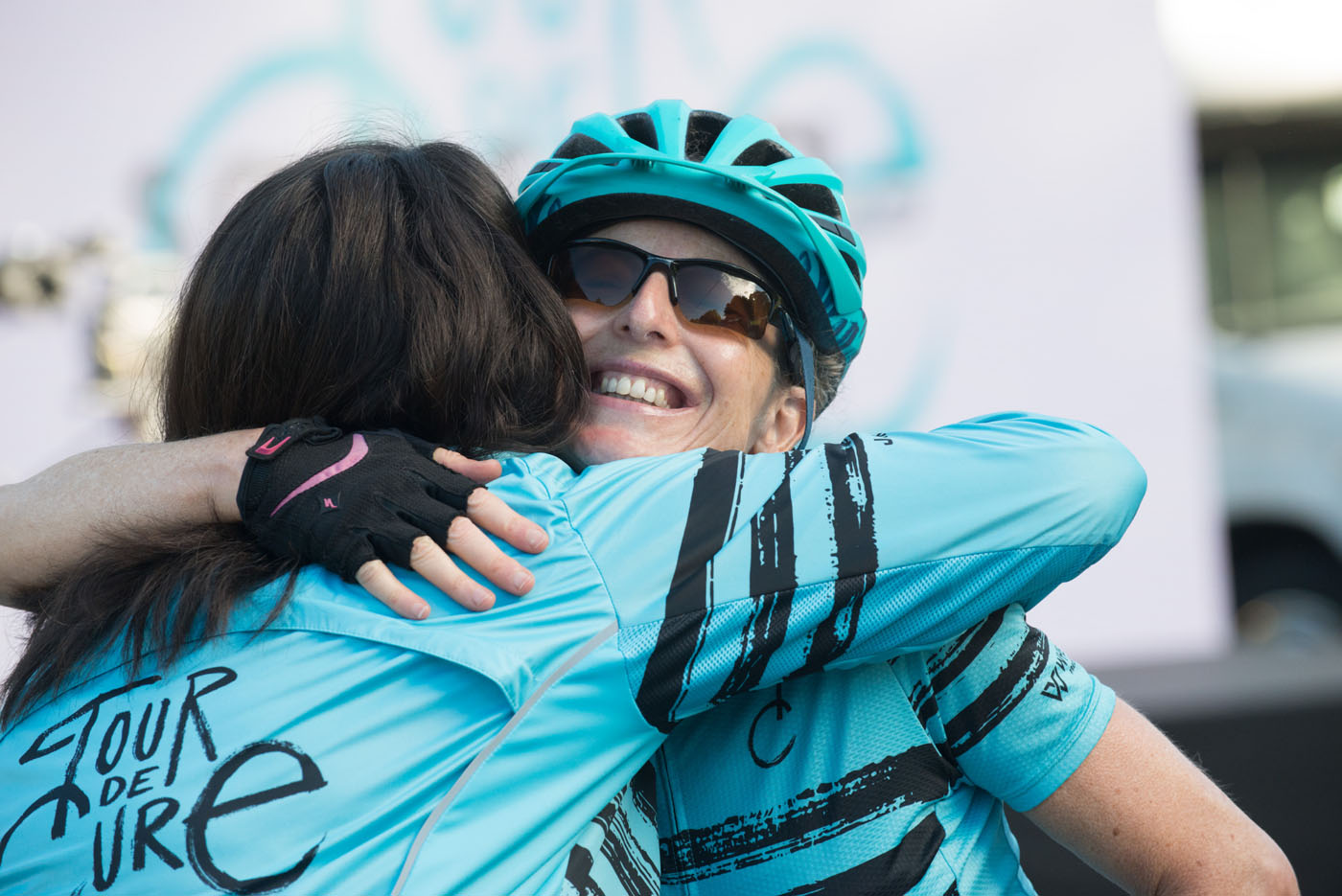
The success of this year’s event was possible thanks to donors like you, who found a route to cycle, connected with your networks to raise funds, and donated to riders who inspired you.
“From the bottom of our hearts, we thank all riders, donors, volunteers, sponsors and supporters for your commitment to the Tour de Cure this year,” says Sarah Roth, President and CEO, BC Cancer Foundation.
“The funds raised will directly impact families across our province facing cancer, and fuel the work of the incredible scientists and clinicians at BC Cancer.”
Next year’s Tour de Cure presented by Wheaton Precious Metals will be held in person on August 27, 2022!
Register today for this unforgettable experience at www.tourdecure.ca or email tourguides@bccancer.bc.ca.
